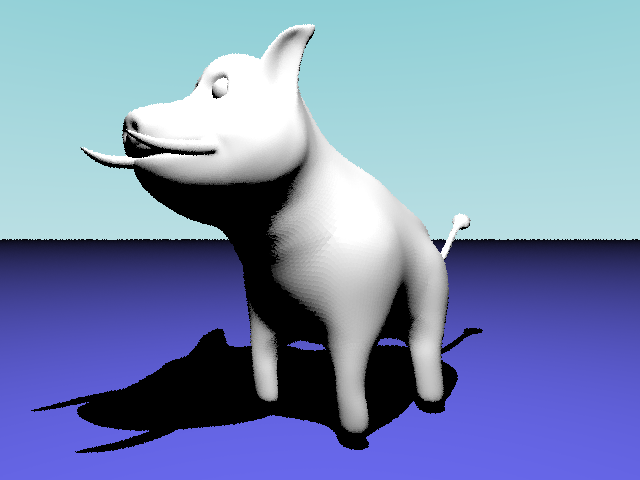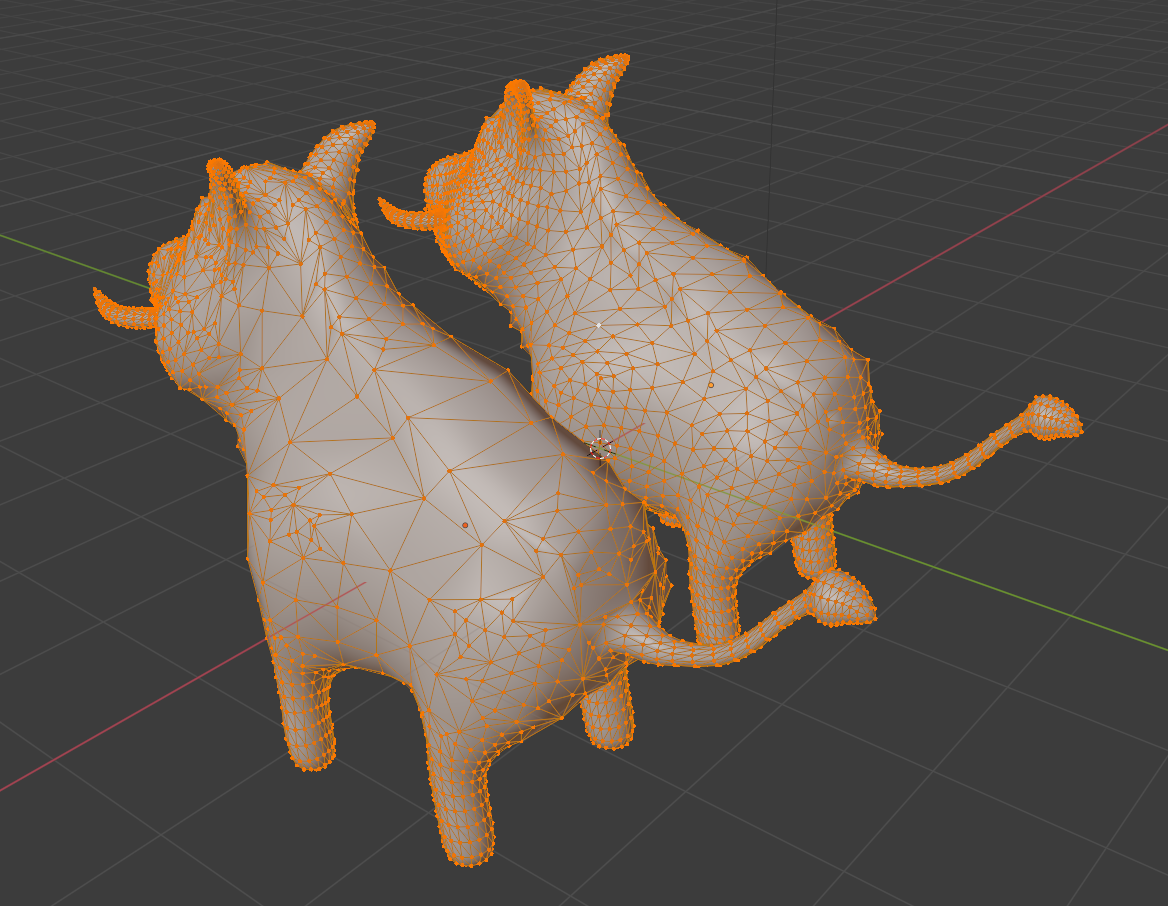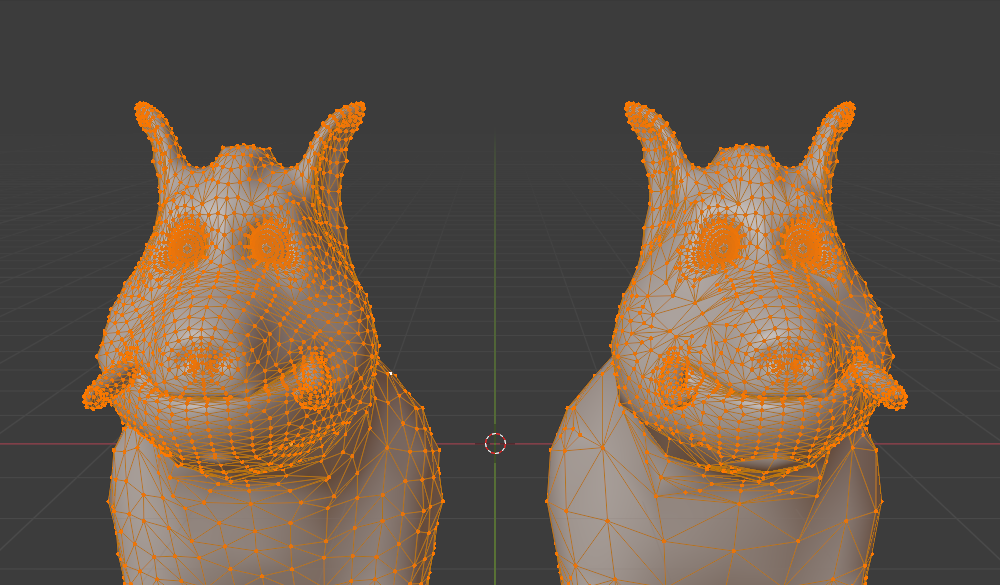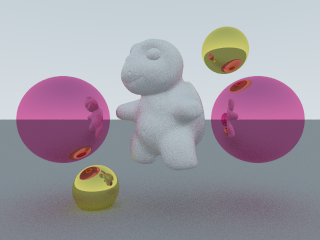Subdivision
The Loop subdivision algorithm was used to subdivide the input geometry [1]. Subdivision surfaces let artists create smooth shapes from polygonal meshes. Subdivision surfaces are a more flexible alternative to NURBS since polygonal meshes can be created easier and animated better. For more information see OpenSubdiv.






